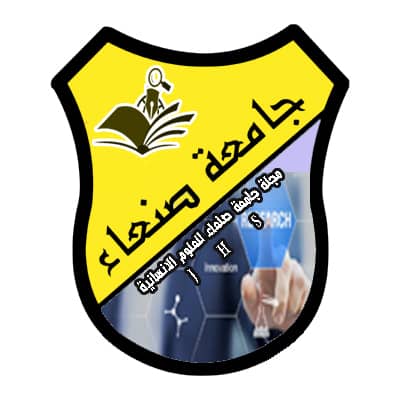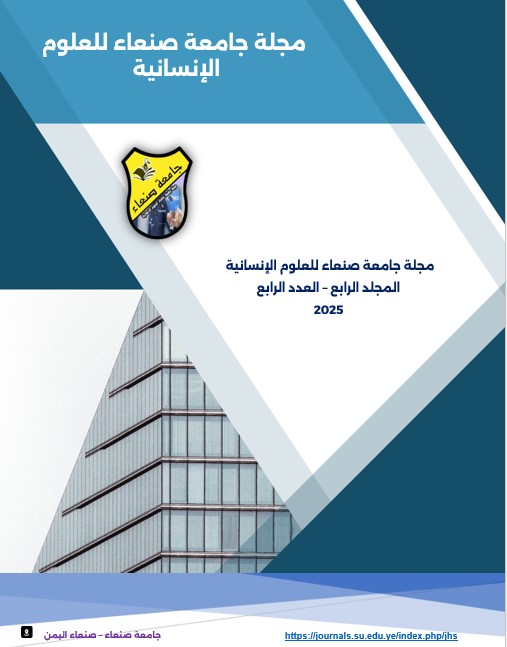The Impact of the Aggressive War on Yemen Children in the Basic Education Stage from a Psychological Perspective: A Field Study on Taiz Governorate
Main Article Content
Abstract
The current study aimed to investigate the psychological effects of the aggressive war on Yemen on children in the basic education stage: Taiz Governorate, Al-Madina directorates as a model. The researcher used the descriptive analytical approach and a questionnaire as a tool to collect data from the study sample, which consisted of (380) male and female students. The results indicated that the level of psychological and behavioral effects resulting from the war among children is significant, with a mean score of (3.54). The averages of these effects ranged from (3.07) as the lowest to (4.59) as the highest. The results also showed that the highest psychological and behavioral disorders resulting from the war among children were represented by statement (5), which reads, "I hate war because it kills children," with a mean score of (4.59).
The results revealed that the averages of statements (11, 8, 7, 3, 1) fall between a mean score of (3.54) as the lowest and (4.16) as the highest, which are related to the following: "I am afraid of the sound of airplanes and missiles," "I feel scared for myself because of the war," "I worry whenever I think about the future due to the war," "I feel scared when I think about the war," "I feel sad because of the war," and "I feel depressed because of the war." These statements represented significant effects. On the other hand, the results showed that the averages of statements (18, 17, 16, 15, 9, 6, 4, 3, 2) fall between a mean score of (3.08) as the lowest and (3.39) as the highest, which are related to the following: "I often think about the war unintentionally," "I have disturbing dreams while sleeping," "I feel tense when talking to others," "I suffer from a lack of focus," "I am withdrawn from others because of the war," "I doubt the people around me as a result of the war," "My aggressive behavior towards others has increased due to the war," "I suffer from isolation and withdrawal," and "I suffer from nail-biting due to feeling anxious." These statements represented moderate effects.
The results indicated that the overall post-traumatic stress disorders among children resulting from the war are significant, with a mean score of (3.40). These effects ranged from a mean score of (3.01) as the lowest to (3.88) as the highest.
The results clarified that the averages of statements (4, 3, 2, 1) fall between a mean score of (3.51) as the lowest and (3.84) as the highest, which are related to the following: "I feel a loss of trust towards others," "War has become a scary part of my daily life," "I avoid people who talk about the war," and "I am afraid of staying alone in the dark." These statements represented significant effects. The results also showed that the averages of statements (10, 9, 8, 7, 6, 5) fall between a mean score of (3.01) as the lowest and (3.27) as the highest, which are related to the following: "I have difficulty concentrating," "I do not feel safe," "I suffer from interrupted sleep," "I get angry quickly for trivial reasons," and "I have disturbing dreams." These statements represented moderate post-traumatic stress disorders among children resulting from the war.
Downloads
Article Details

This work is licensed under a Creative Commons Attribution-NonCommercial-NoDerivatives 4.0 International License.

